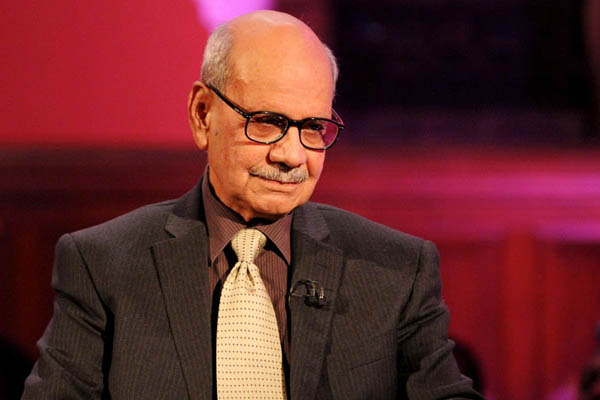
File photo
Former ISI chief claims India is no longer a ‘big threat’ to Pakistan
Former chief of Pakistan’s top spy agency, the Inter-Services Intelligence (ISI), Lt. Gen. (retd.) Asad Durrani has admitted that the military’s interference in politics is a “reality,” adding that this is detrimental to the country.
“The public is not happy with this interference,” he told BBC Urdu in an interview released online on Wednesday. “[Prime Minister] Imran Khan’s biggest issue is the perception that he was installed by the ‘khakis,’” he said, adding, “Some people do not learn from history because they believe they’ll create their own history.”
The Pakistan Army in 2018 launched an inquiry against Durrani to determine whether he disclosed any national secrets in Spy Chronicles: RAW, ISI and Illusion of Peace, which he co-authored with former Indian spy chief A.S. Dulat. After being cleared of all charges, he last month published a new book, Honor Among Spies, which is being seen as a thinly veiled fictional account of his travails.
In his interview with BBC Urdu, the former spy chief said that there was no point in denying the military’s interference in Pakistan’s politics, adding that the debate on whether or not this should happen had yet to be resolved. “Experience tells us that every time the military has tried to force a party out, it has returned [after a brief spell],” he said, adding that this interference is harmful when it is used as a tool of political engineering.
Durrani admitted before the Supreme Court in 2012 that he had distributed millions of rupees among politicians in 1990 on the instructions of then-Army chief Gen. Mirza Aslam Baig, as well as late-president Ghulam Ishaq Khan. He claimed the money had been distributed among politicians linked to the Islami Jamhoori Ittehad to prevent the Pakistan Peoples Party from coming to power.
Referring to the opposition’s ongoing Pakistan Democratic Movement protests in which they have slammed the military’s leadership for interfering in elections, the former ISI chief admitted that the ISI—despite primarily being a counterintelligence unit—could easily accomplish political engineering if instructed to do so. He said PDM President Maulana Fazlur Rehman had greater experience for dharnas than anyone else, and questioned why he would stop his political rallies on the ISI’s say-so.
Internal problems
Durrani said Pakistan’s most dangerous problems were internal. “Currently, some people are politically angry. Areas like Balochistan are facing unrest because the people feel politically alienated and deprived,” he said.
“The economy is also in bad shape; not that if the economy recovers, everything else will be fine too. This government isn’t trusted because people believe it was brought to power by the Army … what kind of leader says he can only become a great leader by taking u-turns? He [Imran Khan] backtracks on everything. People can’t trust a government like this,” he said.
He said the country is currently facing three major challenges: economy, political instability, and lack of social cohesion. He also criticized the government’s handling of the Kashmir crisis, claiming changing a name [as the PTI government did by rebranding India Occupied Kashmir to Indian Illegally Occupied Jammu and Kashmir] was and empty gesture without any benefit.
The former ISI chief also came out against granting provisional provincial status to Gilgit-Baltistan, claiming it would harm the Kashmir cause. “You can give more rights to Gilgit-Baltistan if you want, but it should not be forcibly made a province of Pakistan,” he said, adding that making Balochistan a province had yet to solve the problems of that region. Similarly, he said he had also opposed the merger of erstwhile federally administered tribal areas with Khyber-Pakhtunkhwa. “It had its own special status and in some cases its 500-year-old system was running better than ours,” he added.
Regional concerns
Durrani said Pakistan had always been aligned with the Afghan Taliban, because they were expelling foreign forces. Discussing the ongoing Afghan peace process, he said Islamabad can use its influence to say whatever the Taliban decide after talks would be acceptable to it. “There is nothing more Pakistan can do,” he added.
He said that in his view, Turkey, Iran and Saudi Arabia were among the biggest “new” challenges facing Pakistan.
Indian threat
“India is no longer a big threat [to Pakistan],” Durrani said, claiming its threat had reduced due to its revocation of Jammu and Kashmir’s special constitutional status on Aug. 5, 2019. Despite this, said Durrani, Islamabad should be ready for any potential attack, such as the botched airstrike in Balakot in February 2019.
“We have handled India… after their controversial citizenship law, good people in addition to Muslims have become disillusioned,” he said. “I would say we should not stress about the eastern border anymore… there is no longer any threat from there,” he added.
